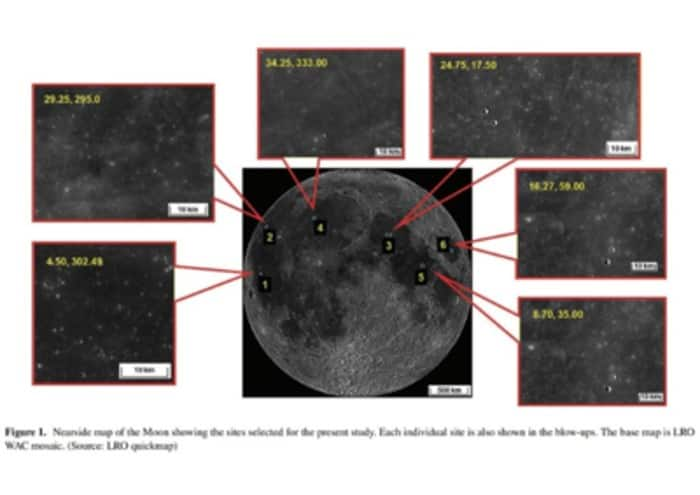Indian researchers have uncovered startling evidence suggesting that the global Covid-19 lockdowns of 2020 may have had an impact as far-reaching as the Moon.
Indian researchers have uncovered startling evidence suggesting that the global Covid-19 lockdowns of 2020 may have had an impact as far-reaching as the Moon.

A groundbreaking study, recently published in the peer-reviewed journal Monthly Notices of the Royal Astronomical Society: Letters, reveals that the lunar surface experienced a noticeable temperature dip during the strictest lockdown period of April-May 2020.
This discovery was made by scientists K Durga Prasad and G Ambily from the Physical Research Laboratory (PRL) in Ahmedabad, using data from NASA’s Lunar Reconnaissance Orbiter (LRO).
The researchers analysed night-time surface temperatures at six different locations on the Moon's nearside, including two sites in Oceanus Procellarum, as well as Mare Serenitatis, Mare Imbrium, Mare Tranquillitatis, and Mare Crisium.
Their findings revealed an anomalous decrease in temperatures during the lockdown months of 2020, with surface temperatures dropping by 8-10 Kelvin (K) compared to the same period in other years. The study examined data from 2017 to 2023, which included three years prior to the lockdown, the lockdown year itself, and three years following the event.
PRL director Anil Bharadwaj was quoted as saying in a TOI report, "...This is an important work by our group here. It's quite unique."
The researchers attribute this significant dip in lunar temperatures to changes in Earth's outgoing radiation during the global lockdowns.
With human activities coming to a near halt during the pandemic, there was a marked reduction in greenhouse gas emissions and aerosols, which in turn led to less heat being trapped and re-emitted by Earth's atmosphere. This drop in Earth's radiative output is believed to have affected the Moon, which acts as a natural amplifier of Earth's radiation signature, according to the study.
"We actually analysed data for 12 years. But used seven years data (2017 to 2023) in our study for uniformity-three years before the lockdown year, 2020 and the three years thereafter," Prasad was quoted as saying in a TOI report.
The most notable temperature dip occurred at Site-2 of Oceanus Procellarum, where the lowest temperature recorded during the lockdown in 2020 was 96.2 K. In comparison, the highest of the lowest temperatures across all sites was 143.8 K at Site-1 in 2022, highlighting significant temperature variations between sites and years. However, 2020 consistently recorded the coldest temperatures, while a warming trend was observed in 2021 and 2022 as human activity resumed globally.

To ensure the observed temperature changes were solely attributable to the Covid lockdown, the researchers also investigated other potential contributing factors, such as solar activity and seasonal flux variations.
"As an anomalous decrease in lunar night-time surface temperatures during the Covid lockdown period is observed, the effect of other possible factors such as solar activity and seasonal flux variation have also been investigated. Results show that none of these factors have any influence on the observed signature, thus supporting our findings to be only due to Covid lockdown," the paper reads.
While this study presents a fascinating correlation between Earth’s environmental changes and lunar surface temperatures, the researchers emphasize the need for more extensive data to fully establish the link. They suggest that future Moon-based observatories could play a vital role in studying the Earth's climate and environmental shifts from a celestial vantage point.
"Moon acts as an amplifier of Earth's radiation signature. This unique global event provided us with a rare opportunity to observe how changes in human activity on Earth can affect our nearest celestial neighbour," Prasad told TOI.
As global environmental challenges grow more complex, this study offers a new perspective on how interconnected Earth's systems are with its cosmic surroundings. It also raises questions about the potential for using extraterrestrial bodies like the Moon as observational platforms for monitoring the Earth's climate.
